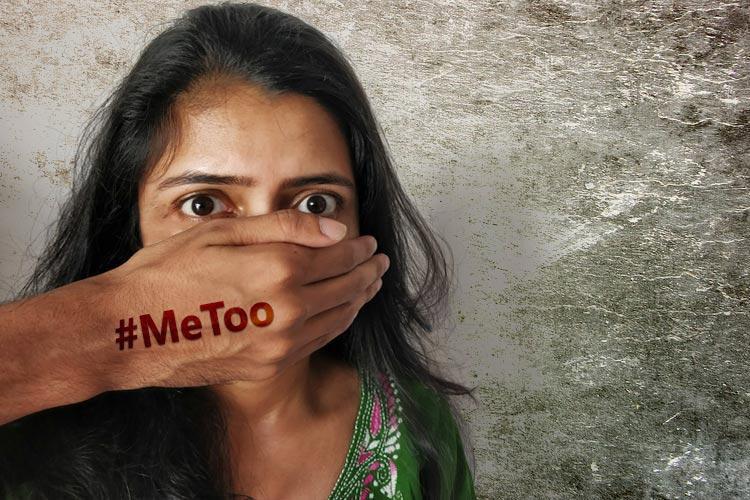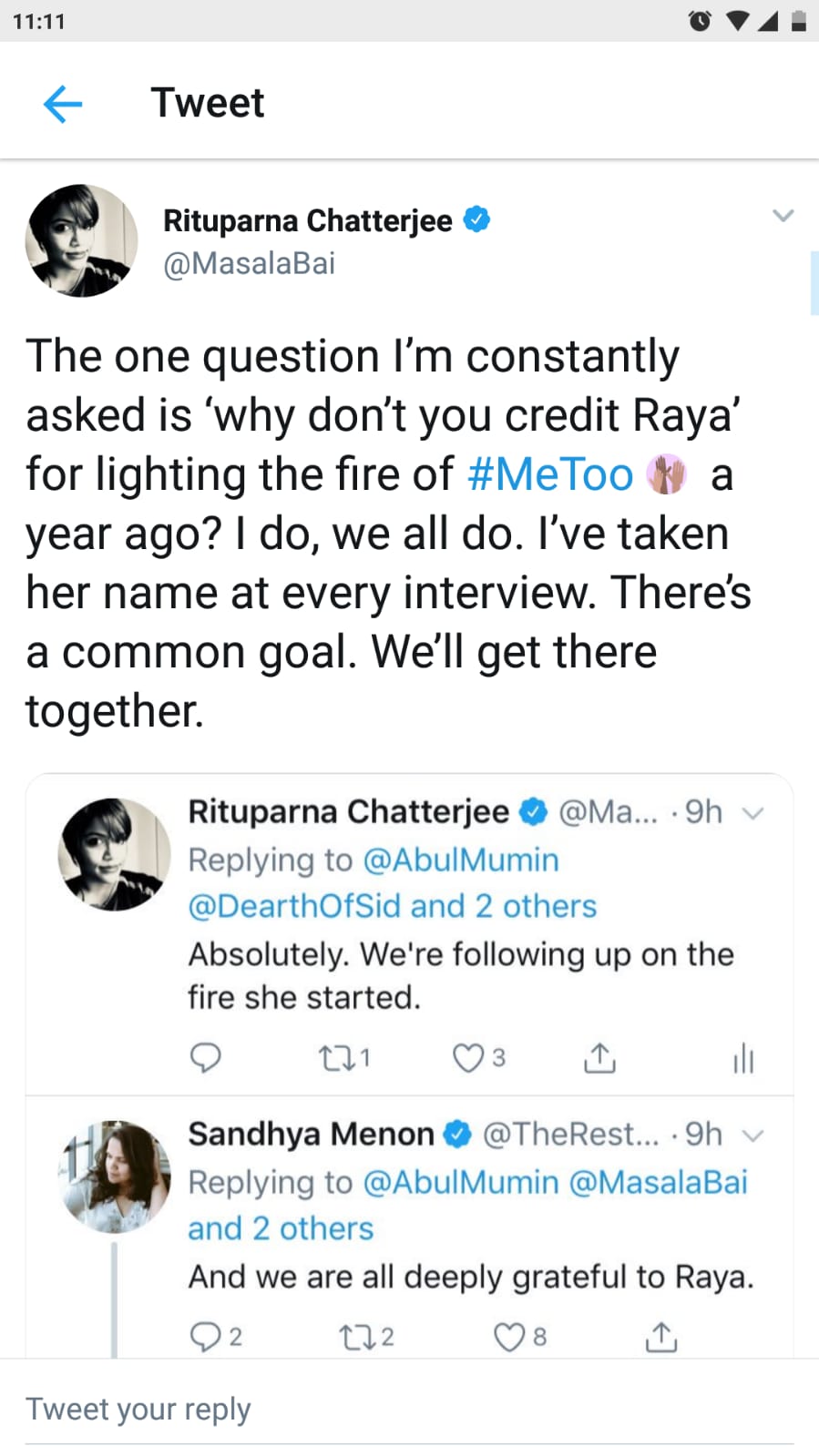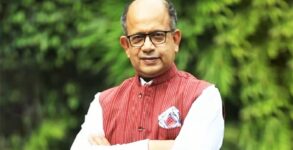The recent wave of MeToo in India which was triggered by actress Tanushree Dutta calling out Bollywood actor Nana Patekar and director Vivek Agnihotri of inappropriate behaviour in two separate incidents has gathered steam as prominent men across industries are being named for sexual harassment. Women from different industries have taken to social media to name their perpetrators. Likes of former editor and current MoS External Affairs, MJ Akbar, film actor Alok Nath, comic artists like Tanmay Bhatt, Gursimran Khamba and Utsav Chakraborty, film producer and director Vikas Bahl, lyricist Vairamuthu, have been named in what is a considerably long list of people who have been accused of serious sexual harassment allegations.
However, there are growing number of voices, primarily from Dalit fraternity that are citing non-inclusivity of this movement although they support it for what it is trying to achieve.
The tipping point of their criticism is the incident from October 2017. Soon after MeToo took off in the USA leading to many prominent actresses naming Harvey Weinstein as their ‘monster’, a 24-year-old law student Raya Sarkar made a list of sexual harassers in Indian academia. The list, LoSHA (List of Sexual Harassers in Academia), as it was called was crowdsourced and soon the number of entries swelled to sixty.
The List was supported by many as a brave step to weed out sexual harassers in academia, but it also saw resistance and criticism. A statement issued in Kafila by 14 notable feminists read, “We are dismayed by the initiative on Facebook, in which men are being listed and named as sexual harassers with no context or explanation.” The statement also called for following ‘due process’ and added, “this manner of naming can delegitimize the long struggle against sexual harassment, and make our task as feminists more difficult.” The current wave of MeToo uses a methodology not very different from Sarkar’s list, something which has been called hypocritical by some on social media.
Dalit Diva who runs the portal ‘Dalit Nation’ makes her point in below tweet:
Let’s be clear the #Metoo movement in India started publicly with #RayaSarkar and other dalit bahujan feminists who were holding space for women to call out perpertrators that were in Indian academia. This act was blasted by #Savarna feminists. I urge people not to erase this.
— Dalit Diva (@dalitdiva) October 8, 2018
She also drew parallel with Tarana Burke, the civil right activist who founded the Me Too movement back in 2006 mentioning how her efforts as initiator of MeToo were wiped:
It is also absolutely infuriating that just as @TaranaBurke was erased initially in founding #metoo, that #Dalitbahujan feminists who were harassed so deeply in the first days of the list are not being recognized. Please give #Rakaray her due & stop erasing DBA feminists.
— Dalit Diva (@dalitdiva) October 8, 2018
@dalitwomenfight, a twitter handle that dedicates itself to building ‘an active anti-caste collaboration’ has put out a statement wherein they affirmed that all survivors of sexual violence have ‘a right to be heard, to be believed, to access justice and to live life with dignity.’ But they also pointed out the exclusion on Dalit women from the movement. ‘We have been wondering about the ‘me’ in #metooindia and have not been able to locate ourselves in this current framework.’
It also made a point about how Dalit women suffer the intersectional impact of caste and gender which is manifold and calls for dismantling of caste powers by those who have spoken up bravely.
They end their statement with following two tweets:
We believe strongly that without unraveling the intersections of caste and patriarchy, no particular #metoo moment will have any meaning in the lives of Dalit women.
— DALIT WOMEN FIGHT! (@dalitwomenfight) October 10, 2018
Dismantling institutions that reek of patriarchy and caste is a long haul for anti-caste feminism and all women – from the margins to the centre, from the poorest to the most empowered. We all will get to live in a better world if that’s done.
#JAIBHIM— DALIT WOMEN FIGHT! (@dalitwomenfight) October 10, 2018
Christina Thomas Dhanaraj (@caselchris1) who works with Dalit Women Fights and as consultant for women and minority-led initiatives quoted Rituparna Chatterjee ( who is one of the journalists leading the current #MeToo wave) to point out how she feels ‘Savarna feminists are discounting the efforts of Dalit women as witch-hunt and attempting ‘an erasure of Dalit women’s voices.’
But can we also talk about how ALL women have value? Can we talk about how easy it has been for savarna feminists to discount the efforts of Dalit women (Raya’s LoSHA that essentially sparked off #MeTooIndia) as witch hunts?https://t.co/PNgp7tQ6pj
— Malarăsculat. (@caselchris1) October 8, 2018
With another tweet in the same thread, she questions what if #MeToo extends beyond journalism and people from upper-caste households are named by Dalit women.
+ Where is your empathy? Can you not relate to a Dalit woman’s humanity? Can you not see us as human, as women? #Metoo #dalitwomenfight
— Malarăsculat. (@caselchris1) October 8, 2018
If #MeToo becomes a tool in the hands of ALL WOMEN, not just journalists, it is most likely that several men in your lives will be called out for their abusive behavior. Women who work as domestic helps may call out your men. Will you say #MeToo and stand by them then?
— Malarăsculat. (@caselchris1) October 8, 2018
Also, what are these whisper networks, and why aren’t Dalit women part of it? By women, you clearly mean only savarna, yes? https://t.co/tEsw8p7Itk
— Malarăsculat. (@caselchris1) October 8, 2018
Sandhya Menon and Anoo Bhuyan, two other journalists who are leading the #MeTooIndia by giving voice to those who want to share their stories of assault at the hand of men in power, have tweeted their ‘gratification’ to Raya Sarkar.
Although many have acknowledged the efforts of Raya Sarkar as one who took the lead in the first lap of #MeTooIndia, the questions about the inclusivity of Dalit women and their sufferings at the intersection of caste and gender need a more patient redressal and a detailed framework of assistance.
Three women claim sexual harassment by director Sajid Khan
#MeToo: Following allegations, Terribly Tiny Tales co-founder Chintan Ruparel steps down as CCO
Disclaimer: The opinions expressed in this article are the personal opinions of the author. The facts and opinions appearing in the article do not reflect the views of NEWSD and NEWSD does not assume any responsibility or liability for the same.




















